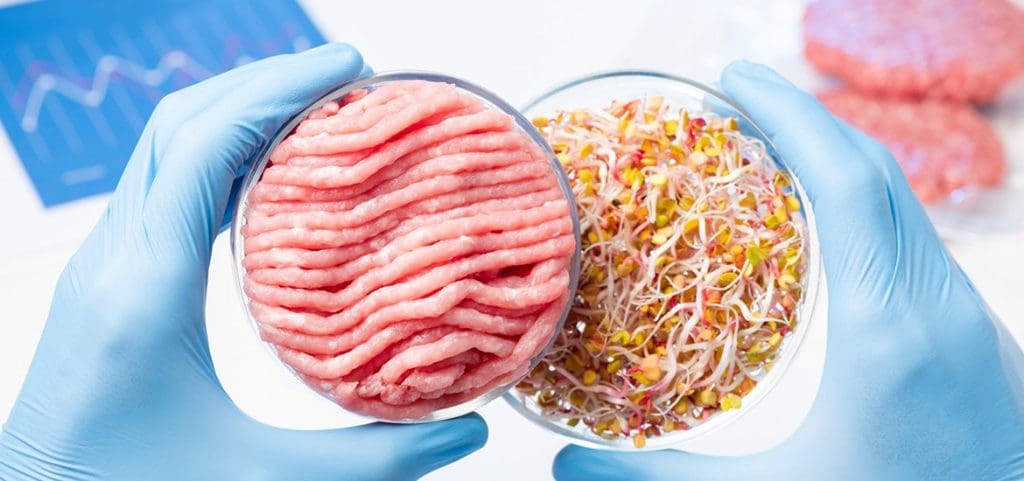In this article, we will delve into the various aspects of plant-based diets, including the health benefits, environmental impact, and dispelling nutritional myths. We will also uncover the truth behind the link between meat consumption and disease, and provide a roadmap to achieving optimal nutrition without meat. Let’s dive in and challenge the idea that humans require meat for a healthy diet.

Examining the Health Benefits of Plant-Based Diets
Plant-based diets have been shown to reduce the risk of chronic diseases such as heart disease, diabetes, and certain types of cancer.
Research suggests that plant-based diets can improve overall health and contribute to weight loss and lower cholesterol levels.
Plant-based diets are rich in fiber, vitamins, and minerals, which can support a healthy immune system and promote digestion.
Transitioning to a plant-based diet can help individuals achieve and maintain a healthy weight, reducing the risk of obesity-related diseases.

Exploring the Environmental Impact of Meat Consumption
Meat production contributes to deforestation, as forests are cleared to make way for grazing land and feed crops.
Livestock farming is a major source of greenhouse gas emissions, contributing to climate change.
Reducing meat consumption can help conserve water resources, as meat production requires significant amounts of water for livestock and feed crops.
Choosing plant-based alternatives to meat can help reduce the demand for factory farming, which has negative impacts on animal welfare and biodiversity.
Unveiling the Truth Behind Nutritional Myths
Contrary to popular belief, plant-based diets can provide all the necessary nutrients, including protein, iron, and calcium.
Many plant-based foods are excellent sources of protein, including legumes, tofu, tempeh, and quinoa.
Calcium can be obtained from plant sources such as leafy greens, fortified plant milk, and calcium-set tofu.
Iron absorption can be enhanced by consuming plant-based sources of vitamin C, such as citrus fruits and bell peppers.
Empowering Humans: Finding Protein Alternatives
Plant-based protein sources can be just as satisfying and nutritious as animal-based proteins. You don’t have to rely on meat to meet your protein needs. There are plenty of plant-based protein options available:
Beans
Lentils
Chickpeas
Hemp seeds
Spirulina
These protein sources are not only rich in protein but also contain other essential nutrients. By incorporating these plant-based proteins into your diet, you can ensure a diverse and complete amino acid profile.
If you have higher protein requirements, such as athletes or individuals recovering from illness, you can also consider using plant-based protein powders and supplements to support your protein intake.

The Evolutionary History of Human Diets
Historically, humans have consumed plant-based diets consisting of fruits, vegetables, nuts, and seeds.
The shift towards a more meat-heavy diet occurred with the advent of agriculture and the domestication of animals.
Evidence from paleontological and archaeological studies suggests that early humans had a varied and omnivorous diet.
Modern humans can thrive on plant-based diets, as our digestive systems and nutritional needs have not significantly changed over time.
Unraveling the Link Between Meat Consumption and Disease
Numerous studies have linked high meat consumption to increased risk of cardiovascular diseases, certain types of cancer, and other chronic diseases.
Processed meats, such as bacon and sausages, have been classified as carcinogenic by the World Health Organization.
High intake of red and processed meats is associated with higher mortality rates and decreased life expectancy.
Reducing meat consumption can help improve overall health and reduce the risk of chronic diseases.
Dispelling Misconceptions About Iron and Calcium Intake
Plant-based sources of iron, such as legumes, tofu, and leafy greens, can provide sufficient iron for optimal health.
Iron absorption can be enhanced by consuming foods rich in vitamin C, such as citrus fruits and tomatoes.
Calcium can be obtained from plant sources such as kale, broccoli, almonds, and fortified plant milk.
Plant-based diets can provide adequate amounts of iron and calcium without the need for animal products.
A Roadmap to Optimal Nutrition Without Meat
Transitioning to a plant-based diet can be done gradually, allowing individuals to explore new foods and recipes. By following this roadmap, you can ensure a balanced and nutrient-rich plant-based diet:

1. Start by reducing meat consumption
Begin by gradually decreasing the amount of meat in your meals. For example, you can start by having one or two meatless days per week.
2. Explore plant-based protein sources
Discover a variety of plant-based protein sources such as beans, lentils, chickpeas, hemp seeds, and spirulina. Experiment with different recipes and incorporate these ingredients into your meals.
3. Incorporate more fruits and vegetables
Add a variety of fruits and vegetables to your meals to ensure you’re getting a wide range of nutrients. Aim for different colors and textures to diversify your nutrient intake.
4. Find plant-based alternatives to favorite meat dishes
If you have favorite meat-based dishes, look for plant-based alternatives that give you a similar taste and texture. There are now numerous plant-based meat substitutes available on the market.
5. Consult with a registered dietitian
Seek guidance from a registered dietitian who can help you create a personalized plant-based meal plan that meets your nutritional needs. They can provide advice on supplements and ensure you’re getting all the necessary nutrients.
6. Embrace new foods and recipes
Be open to trying new foods and experimenting with different recipes. Plant-based diets offer a wide array of flavors and culinary experiences, so embrace the opportunity to expand your palate.
7. Ensure a balanced diet
Pay attention to ensure you’re getting a balanced diet that includes all the essential nutrients. Be mindful of obtaining sufficient amounts of protein, iron, calcium, and other important vitamins and minerals.
8. Plant-based diets at different life stages
Plant-based diets can provide all the necessary nutrients for optimal health at any stage of life, including pregnancy and childhood. However, it’s important to consult with a healthcare professional to address individual needs.
By following this roadmap, you can confidently transition to a plant-based diet and enjoy optimal nutrition without the need for meat.

Conclusion
In conclusion, the evidence suggests that humans do not need meat to thrive and can actually benefit from adopting a plant-based diet. Plant-based diets have been shown to reduce the risk of chronic diseases, improve overall health, and promote weight loss. Additionally, reducing meat consumption can have significant positive impacts on the environment by conserving resources and reducing greenhouse gas emissions. Contrary to common misconceptions, plant-based diets can provide all necessary nutrients, including protein, iron, and calcium. There are plenty of delicious and nutritious plant-based protein alternatives available to ensure a diverse and complete amino acid profile. By embracing a plant-based diet, individuals can empower themselves to make healthier choices and contribute to a more sustainable future.
4.4/5 - (27 votes)



